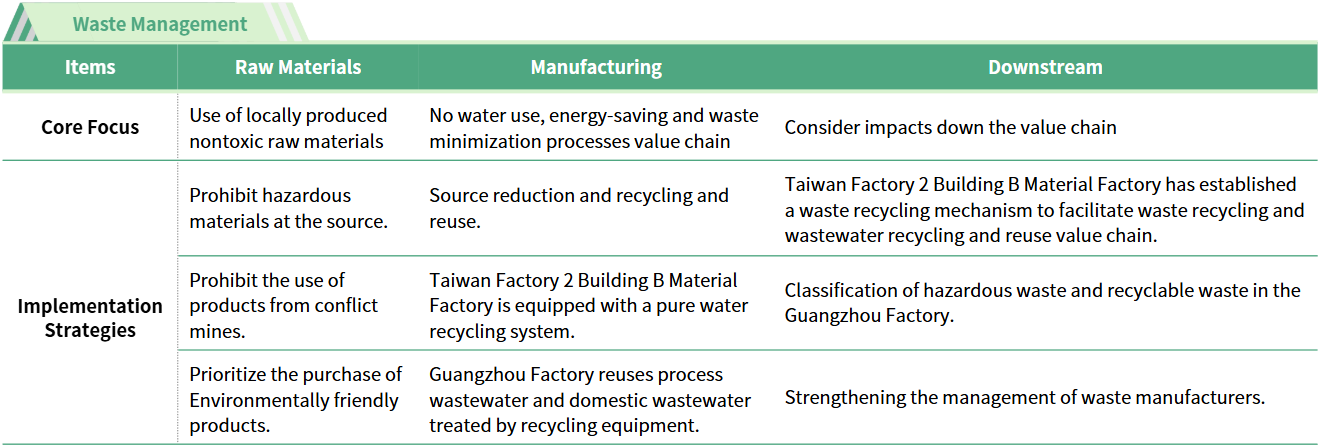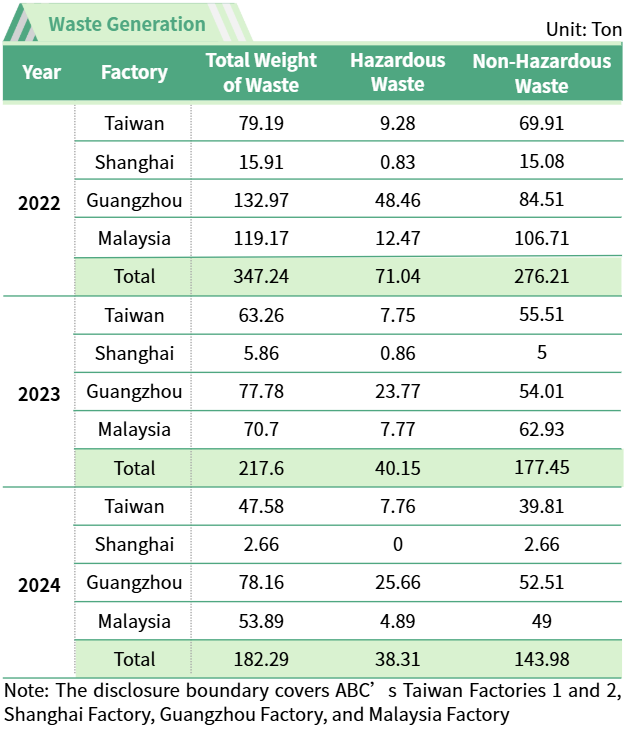Waste Management
ABC-ATEC's waste management principle is "source reduction and recycling." Since the products ABC-ATEC produces cannot use recycled materials, the focus is on waste management at the end of the product life cycle. The waste generated by ABC-ATEC is categorized into three major types: hazardous industrial waste, general industrial waste, and resource recycling waste. Hazardous industrial waste includes items like solvent-containing waste liquids, solvent-containing waste materials, used machine oil, and waste fluorescent lights. General industrial waste comprises general waste generated from business activities, mixed plastic waste, process waste, dry batteries, etc. Resource recycling waste includes items such as beverage cans, PET bottles, waste fluorescent tubes, waste information equipment, dry batteries, wastepaper, waste electronic components, etc.
For the overall disposal of waste, ABC-ATEC follows the Waste Disposal Act's regulations, establishes waste management plans within the organization, collaborates with vendors approved by the competent authorities and signs valid contracts to ensure the legal disposal of waste, with waste classification management implemented in accordance with the "Waste Management Act." Regular inspections and evaluations of business waste treatment facilities are scheduled each year to effectively prevent improper waste disposal. In 2024, there were no incidents of penalties related to waste violations.
The main products of ABC-ATEC are inductors, ceramic heat sinks and precision metal parts. In order to grasp the impact on the environment in the value chain, the Company evaluates the process from raw material procurement, product design, and manufacturing process to waste generation to reduce the impact of operations on the environment.

Waste Generation


